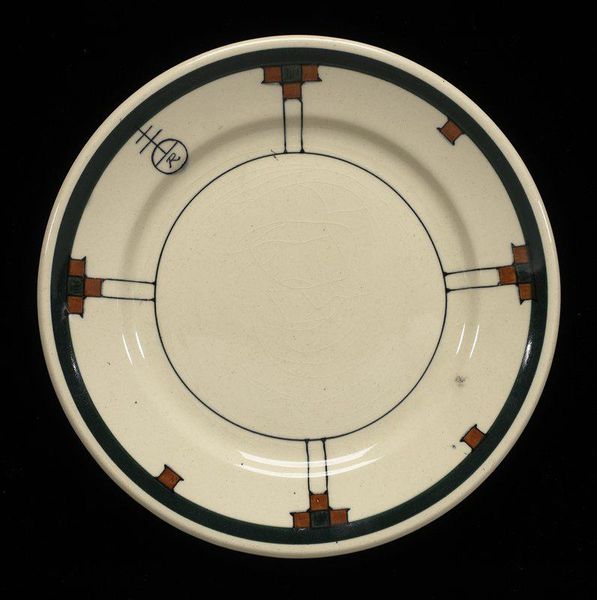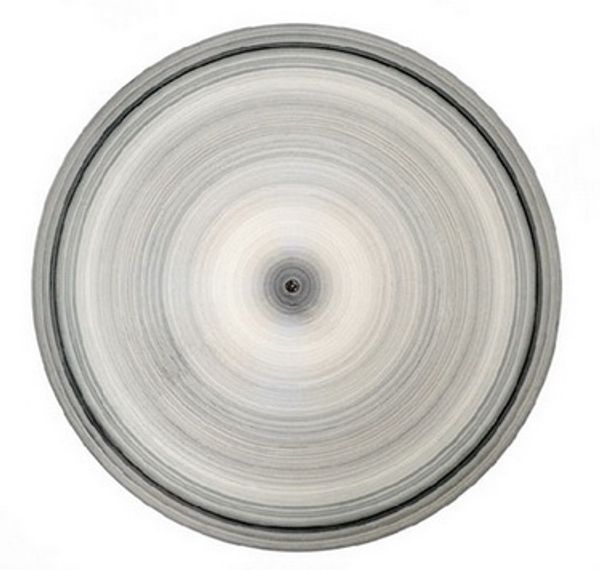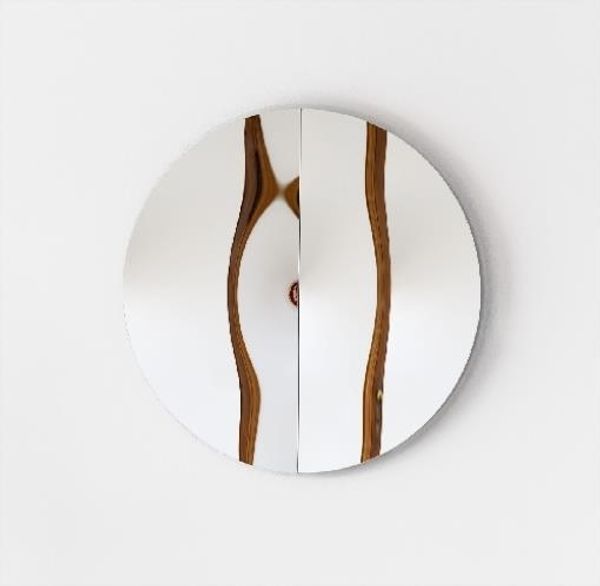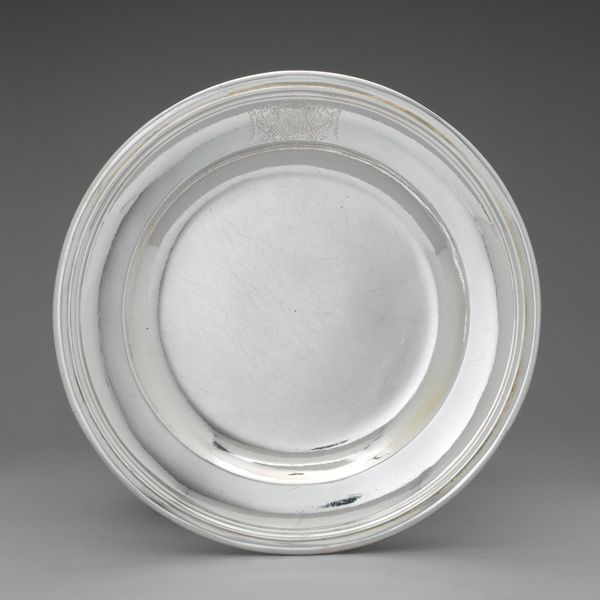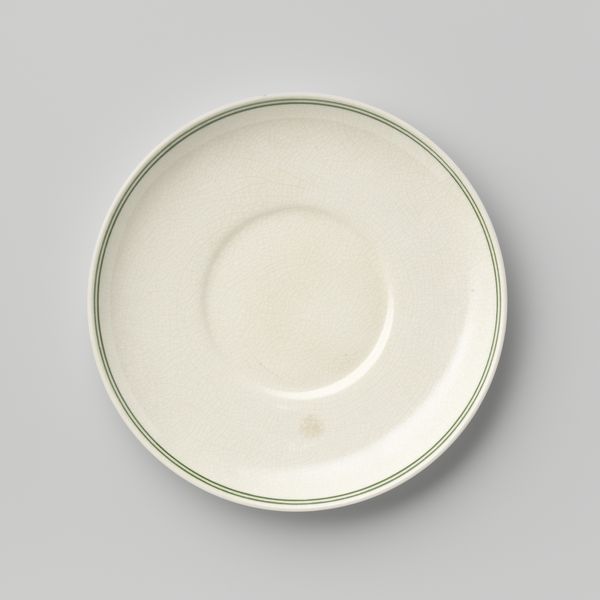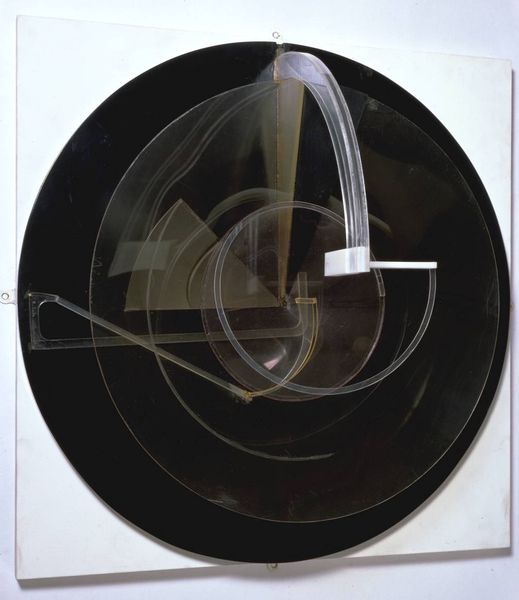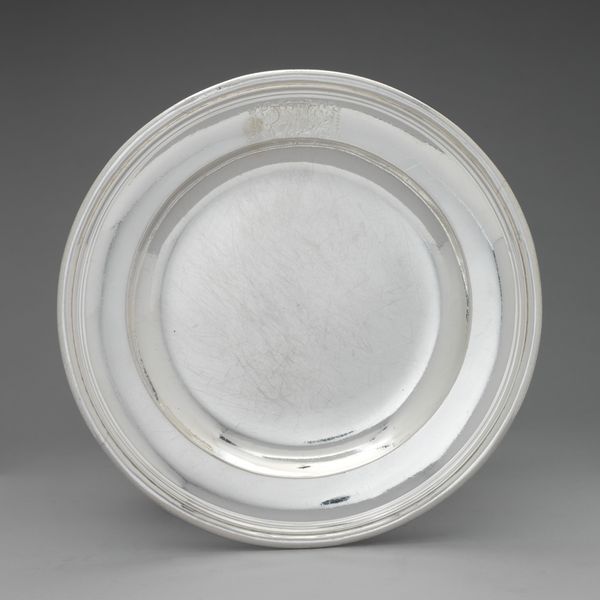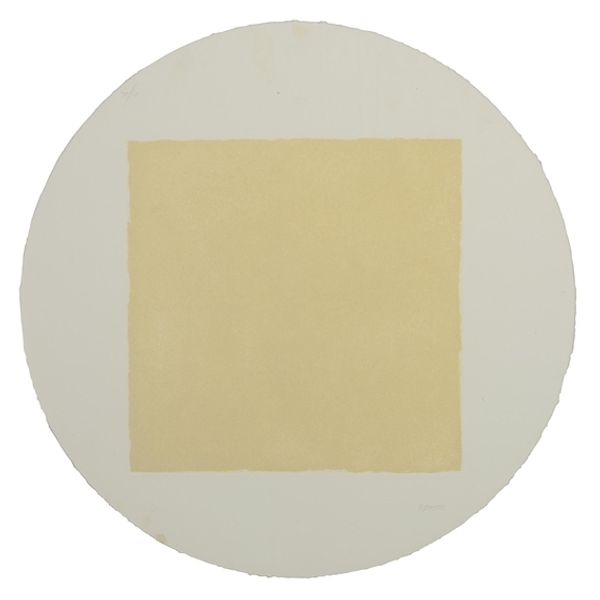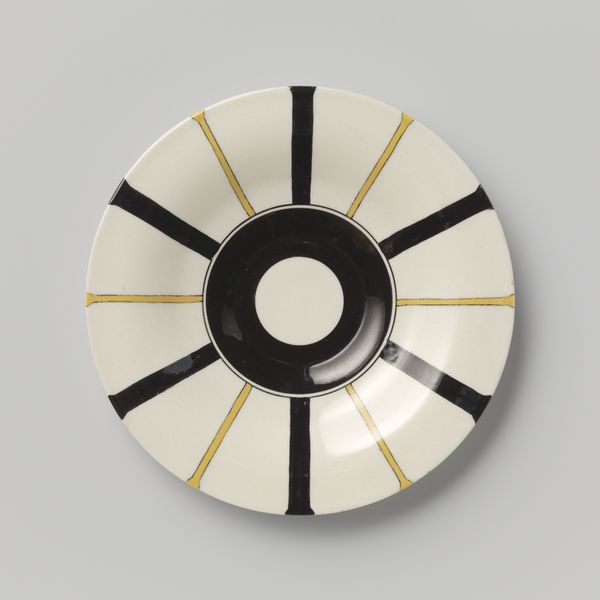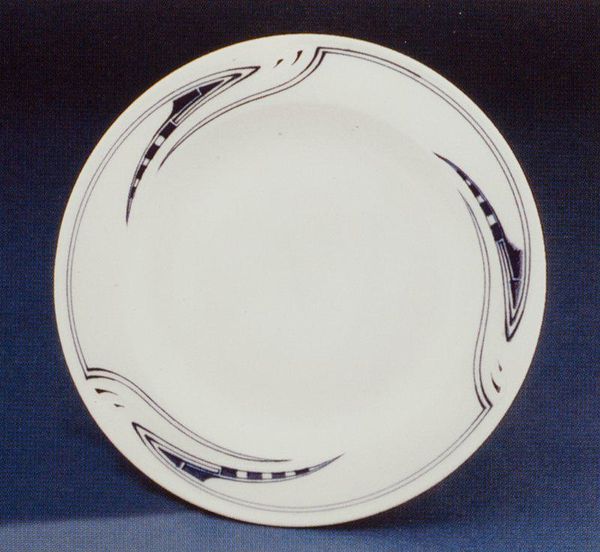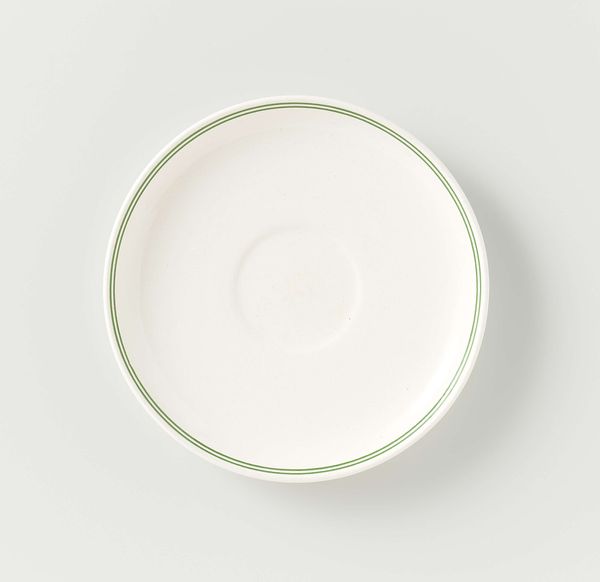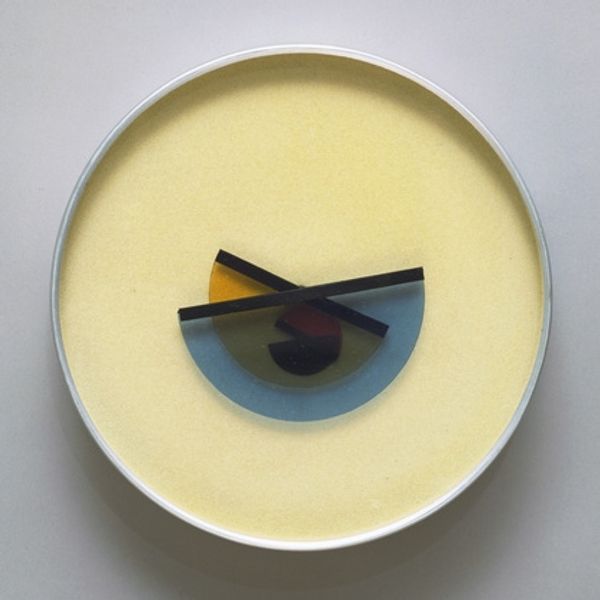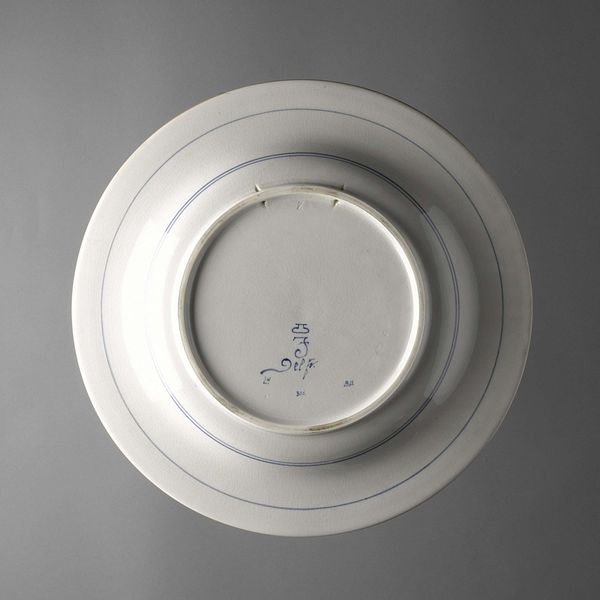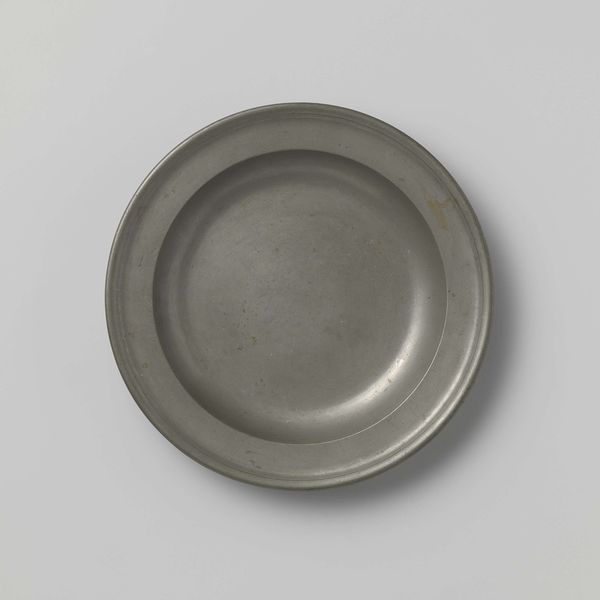
Dimensions: 1 x 8 9/16 in. (2.5 x 21.75 cm)
Copyright: No Copyright - United States
Curator: Immediately, I feel this stark simplicity—almost austere. It’s geometric, yes, but the palette… restrained. It lacks any traditional ornamentation. Editor: We're looking at a "Suprematist plate" by Nikolai Lapschin, likely made between 1909 and 1923. It is a porcelain ceramic piece here at the Minneapolis Institute of Art. Curator: Suprematism taken literally. The symbolism of basic geometric forms elevated… but to what end? Editor: To understand Lapschin's goal, we have to place it in the historical context. Suprematism sought to create a visual language entirely divorced from the natural world, rejecting the decorative excess of earlier eras. It's art reflecting the social and political changes, seeking a universal form accessible and reflecting new political and cultural forms. Curator: Precisely. Look how he uses only a few colors – black, terracotta, and touches of gray – against the white ground. It's a deliberate reduction, pushing beyond mere decoration towards pure sensation and maybe hinting that the world, too, must reduce to be able to see what it truly is. Editor: The shapes are carefully positioned. That large black form on the upper left is echoed and countered by the other one down the plate. The warm terracotta creates some disruption on that rather monochrome pattern, like an unnameable form amongst what seemed very familiar shapes. Curator: Does it truly transcend or just exist in a new kind of cultural vacuum, a porcelain echo chamber? I wonder, was this plate actually used, or was it always intended as an aesthetic statement? Its function – a simple plate – now has social weight added. Editor: A question, indeed! It brings new context and even a quiet subversiveness… a utilitarian object transformed into a vehicle for radical thought. It invites us to reconsider the political charge of a geometric motif, and, of course, wonder about the story the table could have been part of. Curator: Exactly. That's the fascinating tension—between the intended revolution and the almost bourgeois sensibility of a decorative plate, made out of a quite classic medium like porcelain. It forces us to examine the revolution it started within our social narratives and historical assumptions. Editor: So, beyond pure geometry, there’s that layer—a dialogue between object and meaning. I'll remember it that way now.
Comments
minneapolisinstituteofart about 2 years ago
⋮
Geometric forms float on a pure white surface. This plate by graphic designer and artist Nikolai Lapschin was an expression of Suprematism in Russian art, a movement seeking to lift art from the realm of the practical into the spiritual through the use of abstract form and bold color. Russian artist Kazimir Malevich had conceived Suprematism in 1915, while “trying desperately to free art from the dead weight of the real world.” The plate itself is Imperial porcelain made before the Russian Revolution in 1917; and although Lapschin’s aim was to create an artwork, not a serving piece, there is irony in using plates to convey art’s separation from the practical. A similar plate was shown as part of a display of Russian porcelain at the Art Deco exhibition in Paris in 1925.
Join the conversation
Join millions of artists and users on Artera today and experience the ultimate creative platform.
